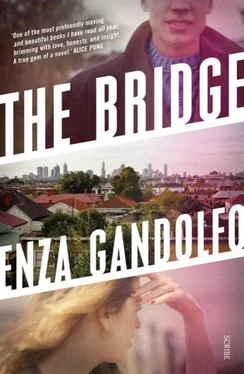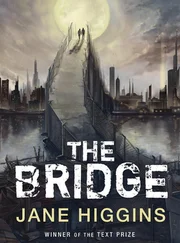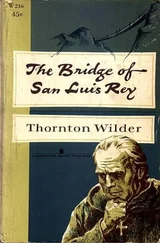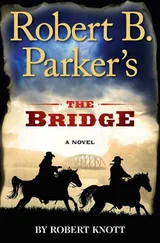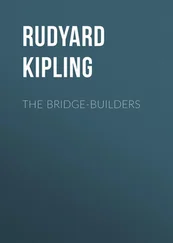It was the storytelling part of the law that fascinated Sarah. The challenge of finding a way of turning the ‘accused’ into a person, someone real and vulnerable; someone that the judge (and jury, if there was a jury) would warm to and empathise with. There was a way of presenting the evidence, the arguments, that gave the court a sense of the person beyond the crime, before the crime. Storytelling was what made the difference between a good barrister and a mediocre one. The prosecution would produce victim impact statements from the dead girl’s parents and her sister, the grandparents, the aunts and uncles and friends. These would be sad accounts. Narratives that would fill the courtroom with grief and with anger, that would make no sentence seem long enough.
Of course, some clients lied. When Sarah was a child, her mother would say, ‘Don’t bother, Sarah, I can tell when you’re lying to me.’ It wasn’t a bluff — no matter how elaborate or straightforward, no matter what voice or tone Sarah used, her mother picked the lies. Sarah had inherited the gift, but there were times when she wished she hadn’t. Greg, one of her clients, a young guy, robbed several stores and bashed a teenage girl who was working at the petrol station in order to save enough money to go to Bali with her girlfriends at the end of the year. The girl spent six months lying in a coma in a hospital. At the hearing, the doctors said that even if she lived, she would be paralysed, and might not be able to read or write. ‘She loved to travel,’ her mother told the court. ‘There’s a big map of the world on her wall. With pins marking the places she’s planning to visit. Should I pull it down before she comes home?’ In court, Greg cried; he apologised; he was remorseful. Sarah knew he was lying. There was no evidence in the stories other people told about him that he had any redeeming qualities. It made mounting a defence difficult. She had the skills and the training to argue on his behalf, to plead for the minimum sentence, but she hoped he’d get the maximum and no one would let him out again. He had a ‘good’ story: a tough life. His parents were addicts, rarely conscious enough to bring up a child. They tried but failed to look after him. Society owed him, but she knew that he’d re-offend.
Jo wasn’t Greg. Jo wouldn’t go out and deliberately hurt someone. She wasn’t evil or malicious. But Sarah knew there wouldn’t be many people lining up to tell her the sorts of stories that would convince the judge to keep Jo’s sentence to a minimum. Jo was an ordinary young woman from a working-class family. She had been irresponsible, negligent, thoughtless; she’d driven while she was drunk and had a fatal accident. Luck, good and bad, was responsible for so much, but the law wasn’t interested in arguments about luck. If Jo had been stopped by the cops that night, before the accident, she might’ve ended up with a fine and lost her licence, she might’ve been charged and ended up on probation. The difference was what — a spill of oil on the road? The difference was a life. Ashleigh’s life.
Sarah read her notes on Jo’s police interview again. ‘Best friends,’ Jo had said, ‘since Year 7.’ Was there a story in that? Sarah didn’t have a best friend. People drifted in and out of her life, rarely staying long enough for any real intimacy to develop. She saw some of her university classmates a couple of times a year. Her ex-girlfriend, Laine, was living in New York. If they were both in the same city, they might’ve continued to see each other, but it was clear now that Laine didn’t intend on coming back, and the emails and Skype calls were becoming less and less frequent. Occasionally Sarah went to Friday-night drinks with her colleagues, but she could hardly call them friends. Of course, there had been Ada; Ada was the closest Sarah had come to having a best friend.
What made Jo the kind of person Ashleigh would have as a best friend? What made Jo the kind of person that would have a best friend? What was Jo’s story? And what if Jo didn’t have a story? Were some people only ever secondary characters in other people’s narratives? If Jo didn’t have a story, how would Sarah give the judge insight into her life, create empathy?
When she was working on Greg’s case, she’d been confident that the right story, told effectively, could shift the court — not just the jury, but the judge too. There had to be evidence and precedence, sure. But stories had power.
That was the danger of a good story: you could elicit pity and empathy for even the worst sociopath — for his rotten childhood, for the abuse and the bullying — and if it impacted on the verdict, on the sentencing, then a killer could be set free to go on killing. People often said, ‘Just tell the truth,’ as if there was a truth and it could be told by one person, as if it could be contained in one story. Sarah believed telling good stories, the ones people listened to and were swayed by, was a responsibility. It worried her that some people did not take it seriously enough.
From the large window over the sink, the sunlight, bright and glaring, beamed into Mandy’s kitchen and exposed its flaws. The white gas stove, wedged into a brick alcove that had once housed a wood-fired oven, was scarred black with scratches and scrapes. The boarded-up chimney had cracks in its brickwork and a black soot coating that someone had unsuccessfully tried to cover over with dark blue paint. The sink under the window was stained and dented, and the red formica table, with its four matching chairs, was just old . The chairs needed reupholstering, their vinyl seats faded to a dull pink. On the wall opposite the stove hung an old print of a basket overflowing with bread. Underneath it, on the bench, there was a chipped crystal bowl with some oranges and apples. Even though everything was spotless, the room looked weary and worn out.
‘I only have instant coffee,’ Mandy said to Sarah. ‘Not much of a coffee drinker. Jo says no one drinks instant anymore.’
‘It’s fine,’ Sarah said. ‘My mother’s a coffee nazi, but I drink anything and everything.’
The latte set to which Sarah’s mother and most of the legal fraternity belonged thought drinking instant coffee was sacrilegious. Sarah’s mother gave long lectures to anyone who would listen on the dangerous chemicals used in the process of making instant coffee. She rarely drank coffee and bought only organic blends. For Sarah, instant might not be coffee, not in the same way that espresso was coffee, but she drank it with milk and sugar, in her clients’ kitchens, in weatherboard houses in the western suburbs of Melbourne. The coffee, served in big thick mugs around which she wrapped her hands, opened up the way into difficult conversations.
‘How long have you lived here?’ Sarah asked.
‘All my life, except for a couple of years when Jo was a baby. My mother was born in this house.’
‘Guess you would’ve seen a lot of changes,’ Sarah said.
‘My father used to say, “Yarraville’s getting too big for its boots,” and the changes were only starting when he died. If he was alive now, he’d hate it. He was a boilermaker, worked in the local foundry. When I was a kid all our neighbours were workers — factory workers, rail workers, wharfies, or labourers. A couple were tradies. A few worked in shops. I remember the Kokinos, who owned the fish and chip shop. Mrs Kokinos’s arms were covered in burn scars from the splattering hot oil, and the kids, especially my friend Helen, were always falling behind at school because they worked in the shop most nights.’
‘Very different now,’ Sarah agreed.
‘A lot of those people have left. The rents are too high, and you get sick of being looked down on. Some people can’t hide their contempt. We’re bogans, losers, trash. It’s tough on our kids — they go to school with kids whose families can go overseas twice a year and buy all the new gadgets before they’re even in the shops.’
Читать дальше
